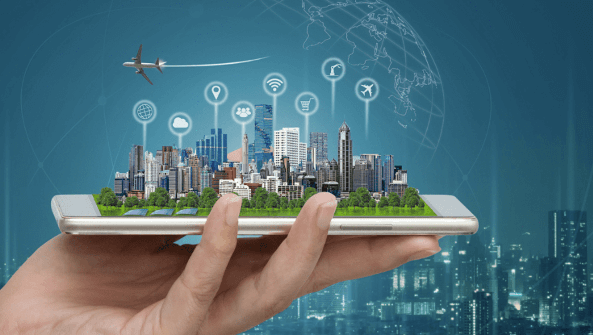How Tech Is Enabling Smarter Cities

The integration of technology into urban landscapes is fundamentally transforming how cities operate, creating environments that are not only more efficient but also more responsive to the needs of their inhabitants. From smart infrastructure innovations to data-driven urban planning, these advancements are reshaping transportation systems and energy management practices. As cities strive to enhance livability and sustainability, various technological solutions are emerging to address pressing challenges. However, the implications of these changes extend beyond mere efficiency, prompting a deeper examination of the role technology plays in shaping our urban future.
Smart Infrastructure Innovations
Within the rapidly evolving landscape of urban development, smart infrastructure innovations stand at the forefront of transforming cities into more efficient, sustainable, and livable environments.
Technologies such as smart waste management systems optimize resource collection, reducing costs and environmental impact.
Additionally, intelligent lighting solutions enhance public safety and energy efficiency, illustrating how integrated systems can foster urban resilience and promote a sense of community freedom.
Enhanced Transportation Solutions
The advancements in smart infrastructure innovations naturally extend into the realm of transportation, where enhanced solutions are reshaping how individuals and goods navigate urban environments.
Autonomous vehicles are being integrated with real-time tracking systems, optimizing routes and reducing congestion.
This convergence not only increases efficiency but also empowers citizens with the freedom to choose seamless travel options tailored to their unique needs.
Sustainable Energy Management
As urban areas continue to grapple with the challenges of climate change and resource depletion, sustainable energy management emerges as a critical component of smarter city initiatives.
By prioritizing renewable energy sources and enhancing energy efficiency, cities can reduce their carbon footprints while empowering residents.
This approach not only fosters environmental responsibility but also cultivates a sense of autonomy, allowing communities to thrive sustainably.
Data-Driven Urban Planning
Data-driven urban planning represents a transformative approach to designing and managing urban spaces, leveraging vast amounts of information to inform decision-making processes.
By integrating predictive analytics, planners can anticipate future trends and challenges, fostering proactive solutions.
Moreover, engaging communities in this process ensures diverse perspectives shape urban development, empowering citizens and enhancing the overall quality of life in increasingly dynamic urban environments.
Conclusion
In the grand theater of urban development, technology emerges as both savior and jester, promising smarter cities while occasionally delivering the absurd. As autonomous vehicles navigate the chaos of human unpredictability and smart waste systems engage in a never-ending duel with overflowing bins, the quest for efficiency often morphs into a comedy of errors. Ultimately, while these innovations herald a brighter, more sustainable future, one must wonder if the true genius lies in the technology or the delightful circus it creates.





